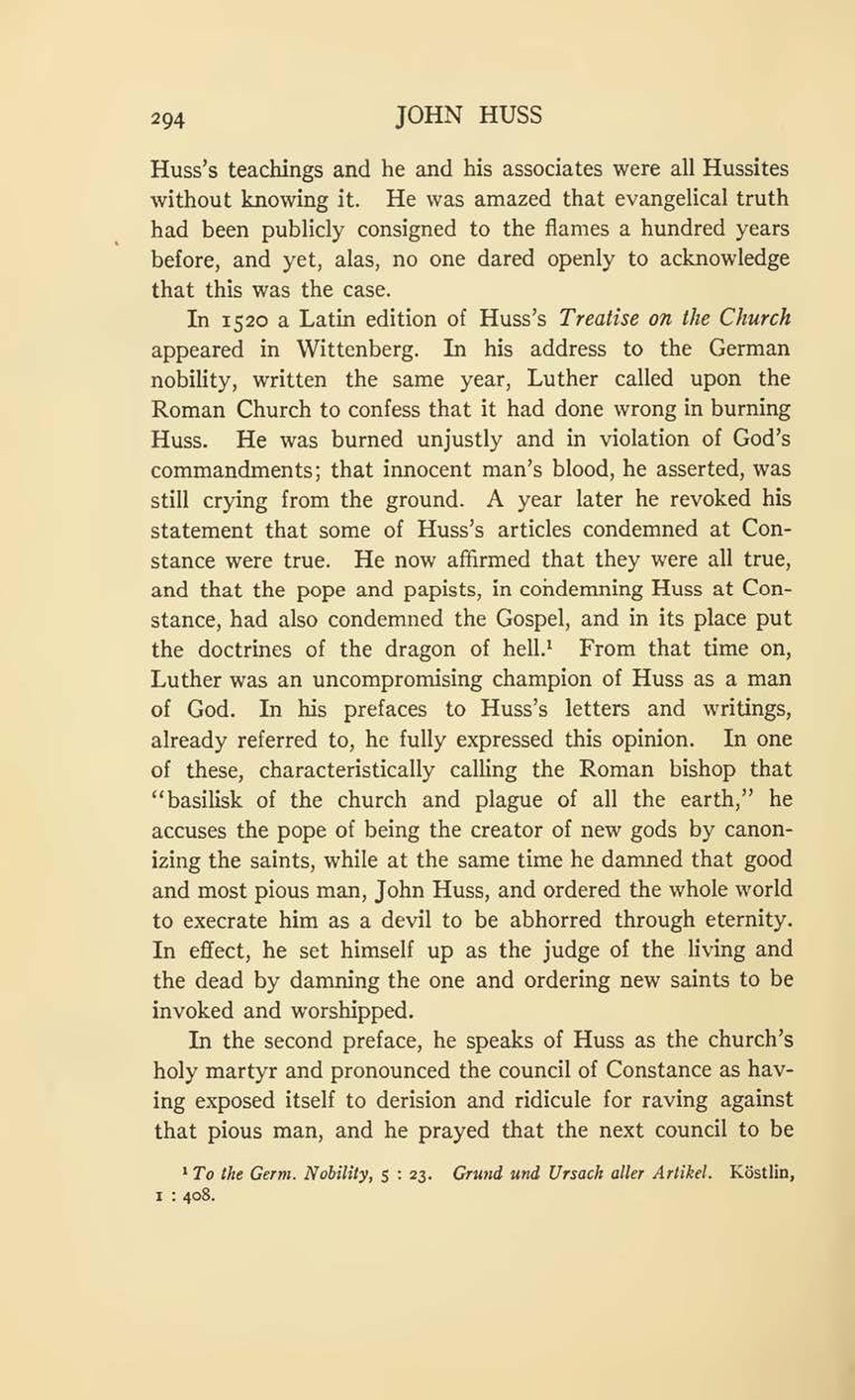Huss’s teachings and he and his associates were all Hussites without knowing it. He was amazed that evangelical truth had been publicly consigned to the flames a hundred years before, and yet, alas, no one dared openly to acknowledge that this was the case.
In 1520 a Latin edition of Huss’s Treatise on the Church appeared in Wittenberg. In his address to the German nobility, written the same year, Luther called upon the Roman Church to confess that it had done wrong in burning Huss. He was burned unjustly and in violation of God’s commandments; that innocent man’s blood, he asserted, was still crying from the ground. A year later he revoked his statement that some of Huss’s articles condemned at Constance were true. He now affirmed that they were all true, and that the pope and papists, in condemning Huss at Constance, had also condemned the Gospel, and in its place put the doctrines of the dragon of hell[1]. From that time on, Luther was an uncompromising champion of Huss as a man of God. In his prefaces to Huss’s letters and writings, already referred to, he fully expressed this opinion. In one of these, characteristically calling the Roman bishop that “basilisk of the church and plague of all the earth,” he accuses the pope of being the creator of new gods by canonizing the saints, while at the same time he damned that good and most pious man, John Huss, and ordered the whole world to execrate him as a devil to be abhorred through eternity. In effect, he set himself up as the judge of the living and the dead by damning the one and ordering new saints to be invoked and worshipped. In the second preface, he speaks of Huss as the church’s holy martyr and pronounced the council of Constance as having exposed itself to derision and ridicule for raving against that pious man, and he prayed that the next council to be
- ↑ To the Germ. Nobility, 5: 23. Grund und Ursach aller Artikel. Köstlin, 1: 408.
